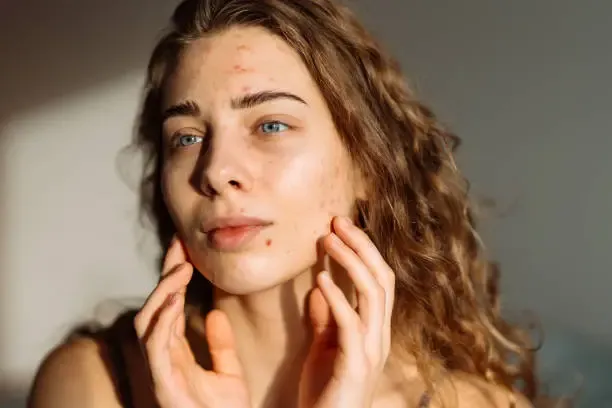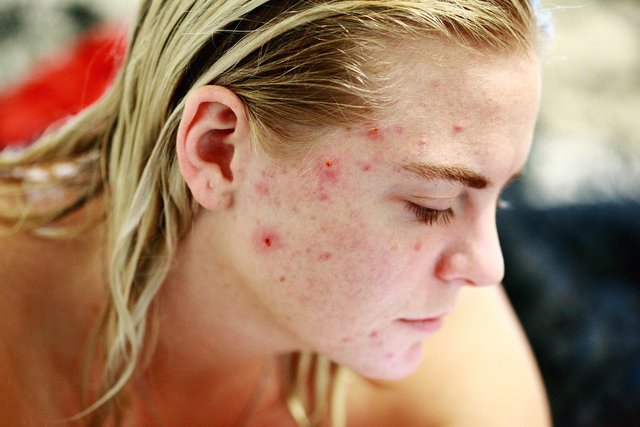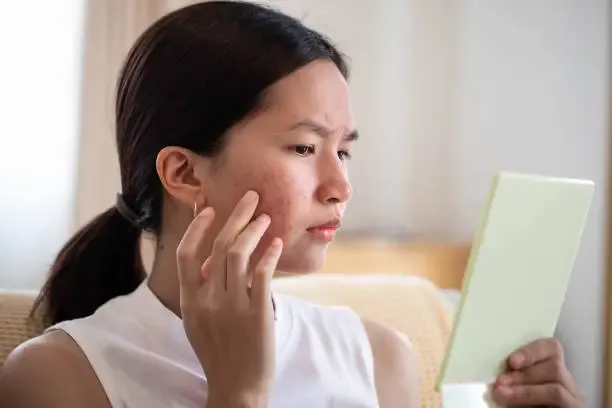Acne Awareness Challenge.
Hola amigos, it is my pleasure to be with you all here today to give my insights on the topic of acne awareness. This is one of the most common skin conditions across the world which most people tackle; although it heals fast, maintaining a good diet also helps in preventing acne.

What is acne, and what causes it?
Acne can be seen as a familiar skin condition in which the hair follicles become clogged with oil and dead skin cells, which then results in blackheads, pimples, and whiteheads. Acne is also capable of causing inflammatory lesions like nodules, cysts, papules, and pustules. It is usually caused by a combination of factors like bacterial activities, clogged pores, and excess oil production.
CAUSES OF ACNE
Acne is a skin condition which has a lot of factors like ;
Excess oil production (sebum): The sebaceous glands, responsible for the production of oil sebum, start to be too overactive, more often in the puberty stage due to certain hormonal changes.
Clogged pores: The dead skin cells and excess sebum are capable of clogging the pores of the skin, stopping them from shedding naturally.
Genetic factors: Most individuals do inherit acne from their parents; this often occurs because we, the offspring, inherit everything we have from our parents. If they have vitiligo, for instance, we or our unborn children are likely to have it as well.
Most times, some medications, greasy cosmetics, and emotional stress can contribute to acne.
Hormonal fluctuations: Our hormones, most especially the androgen-like testosterone, can stimulate the sebaceous glands to produce more oil, which can, in turn, lead to acne, especially in the period of menstruation and puberty.
Bacterial activities: They are harmless bacteria on the skin, like the propionibacterium acnes, and can thrive in clogged pores, leading to inflammation and pus formation.
What are the different types of acne?

Acne, as a common skin condition, is likely to manifest in several forms, more often categorized as non-inflammatory (like whiteheads and blackheads) and inflammatory (like pustules, cysts, papules,s, and nodules).
"Non- inflammatory acne"
Blackheads are plugged hair follicles that reach the surface of the skin and eventually open up, likely in black due to the air discoloring the sebum, not because it has become dirty.
Whiteheads are mostly hair follicles that are often beneath the skin and produce a white bump.
"Inflammatory acne"
Pustules are topped by either yellow or white pus-filled lesions that may be red at the base. The papules are usually red, small, raised bumps which can be sore or tender.
Cysts are large, pus-filled lumps that may look similar to boils and often carry the greatest risk of results like permanent scarring. Nodules are also large, painful, solid lesions that are lodged deep within the skin.
How can acne be prevented? (Share Home Remedy)

To prevent acne as a whole, we have to maintain a regular skincare routine, which includes avoiding harsh products, gentle cleansing, and using non-comedogenic products, along with home remedies like cinnamon masks and honey.
Regular cleaning of the skin at least twice a day will go a long way in the prevention of acne; wash your hands gently with a mild, oil-free cleaner twice a day more often after sweating or wearing makeup. Avoid harsh products like scrubs or cleaners, which can strip the skin of its natural oils, which may technically lead to overproduction.
Use of non-comedogenic products: go for make-up and skincare products labeled non-comedogenic, which means that they have less power to clog pores. You may have acne-prone skin, your skin must stay hydrated with a non-comedogenic moisturizer. You also have to wash bed linens, pillowcases, and make-up brushes regularly to avoid the buildup of bacteria and dead skin cells.
Home Remedy
Ingredients: 1 tablespoon of honey and 1 teaspoon of cinnamon powder.
Application: apply the paste to the affected spot or your entire face, then leave it for about 10-15 minutes before rinsing thoroughly with warm water.
Benefits: Honey is known for its antibacterial properties, while cinnamon can help reduce inflammation.
I would like to invite
@josepha
@pea07
@livric
@bonaventure24
@pandora2010
Thanks for stopping by and reading this post.!!!!
Hola @chiagoziee
Son muy buenos tips recomendados para prevenir el acné como el lavado de las sabanas y de las brochas usadas en el maquillaje regularmente reduciendo al mínimo la proliferación de bacterias y células muertas.
Saludos y exitos